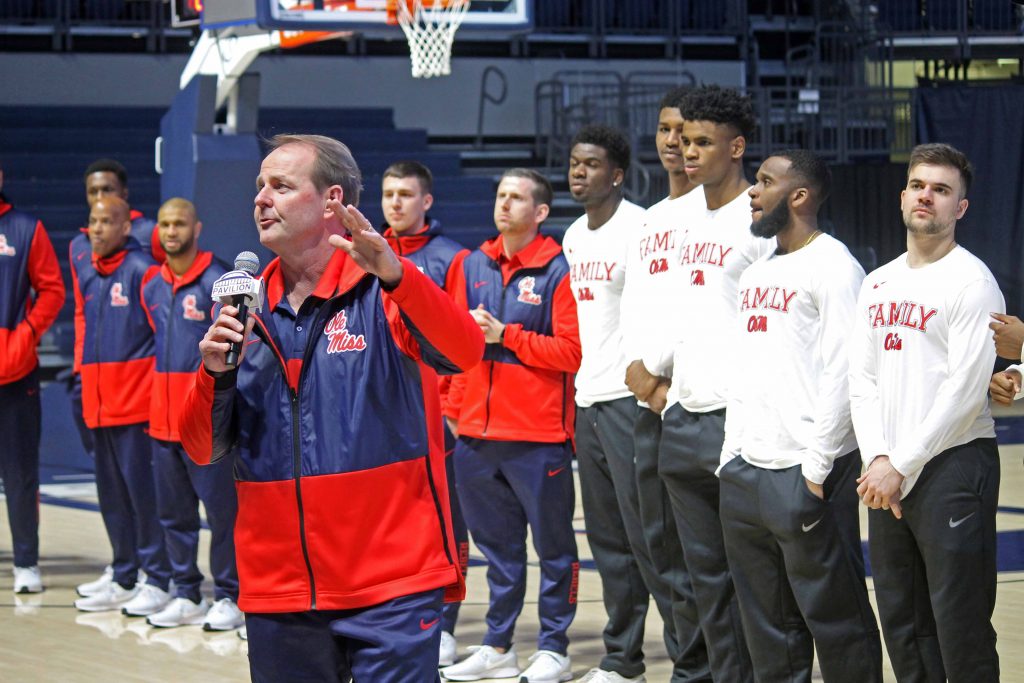The United Methodist Church strengthened its opposition to LGBTQ inclusion at its global General Conference last month. The Traditional Plan, which bolstered the standing policy that banned same-sex marriage and the ordination of LGBTQ people, passed with 53 percent of the vote.
The decision was recently criticized for confirmed voting errors, but it is unknown how the church will react.
United Methodist organizations in Oxford are now deciding what to do in response to the plan.
“At one level, nothing has changed, and at another level, everything has changed,” said Rev. Eddie Rester, the lead minister at Oxford University United Methodist Church.

He said that the way the community perceived the church would change from the vote, but the day-to-day operations would not. Oxford University UMC has not performed a same-sex marriage or had an openly LGBTQ minister in its history.
Many United Methodist churches across the country have broken the policies regarding LGBTQ inclusion in the past. Rev. Karen Oliveto, in San Francisco, was voted the first openly lesbian United Methodist bishop in 2016, though the church’s highest court later ruled that her consecration violated church law. Many Methodist ministers have performed same-sex weddings, and some have faced penalties, varying by jurisdiction.
The Traditional Plan included stricter penalties for clergy who broke church law. A first offense carries a mandatory sentence of one year’s suspension without a salary. A second offense would lead to losing credentials as a United Methodist minister.
“The result was devastating,” said Helen Ryde, Southeastern regional organizer for the Reconciling Ministries Network. “Especially in the South, when a large institution like the UMC makes a statement like this, it has a negative impact beyond the walls of our church.”
The Reconciling Ministries Network is an organization that works for LGBTQ inclusion in the United Methodist Church. Nearly 1,000 Methodist communities are a part of the network, three of which are located in Mississippi, all in Jackson.
“I can’t imagine any other outcome that has provided this amount of support,” Ryde said, noting the silver lining of the vote.
Since the General Conference, 700 Methodists have joined the Reconciling Ministries Network, 225 of which were from the southeastern United States. Every conference in the Southeast — 14 regional groupings of churches in total — has a member in the RMN.
“A significant influx of new contacts and new people are ready to do ministry in a new, more inclusive way,” Ryde said.
Some Oxford church leaders do not see a change on the horizon. Though the General Conference provided a way for churches to leave the denomination for the first time, the leaders of the Oxford University UMC and the Ole Miss Wesley Foundation, the UMC organization for students, said they did not anticipate leaving the denomination.
“Since I was ordained under this legislation, I could have chosen another denomination to go with if I disagreed with it,” said Rev. Eddie Willis, the campus minister of the Ole Miss Wesley Foundation. He explained that the original legislation banning LGBTQ ordination and marriage is almost 50 years old, and this resolution does not change much about the stance of the church.
Though he said that all people are welcome in UMC faith communities and that there was no prerequisite to be a part of the foundation, he said he believes that marriage is between a man and a woman.
“This has really helped open up some good conversational dialogue,” Willis said, adding that he would have conversations about the issue with students, only if they came seeking answers.
Rester and Willis both said there were multiple viewpoints in their congregations and that the issue would be divisive locally as well as nationally.
Rester also said he has been talking with church members who are members of the LGBTQ community and listening to their concerns. Oxford University UMC held a meeting on Sunday afternoon with Mississippi’s UMC bishop, James Swanson, to hear his thoughts and ask questions. On March 25, Bishop Ken Carter, president of the United Methodist Council of Bishops, will hold a meeting with the congregation to discuss the “important work in front of us,” according to an open letter from Rester to the community.
“I would call on the clergy of all churches to listen to the voices of the LGBTQI people they know and be prepared to provide pastoral care,” Ryde said. “In some areas, that’s the best we can hope for.”













